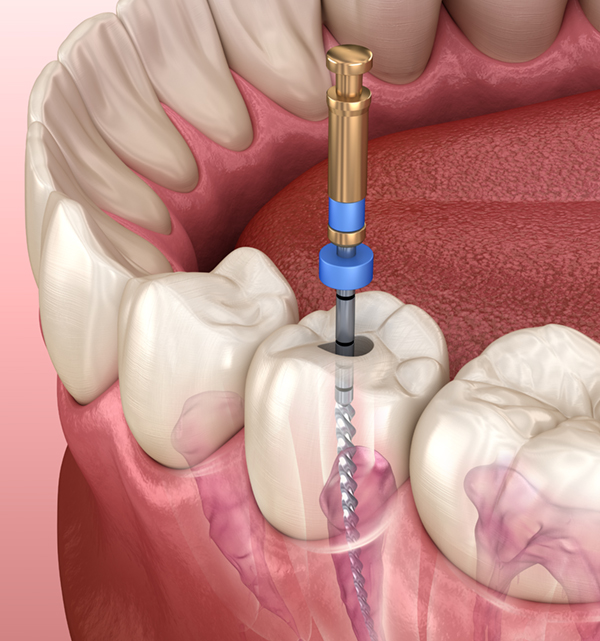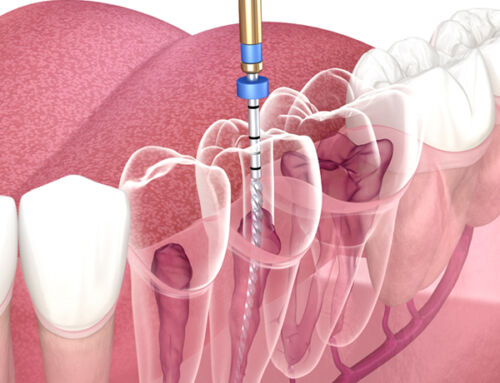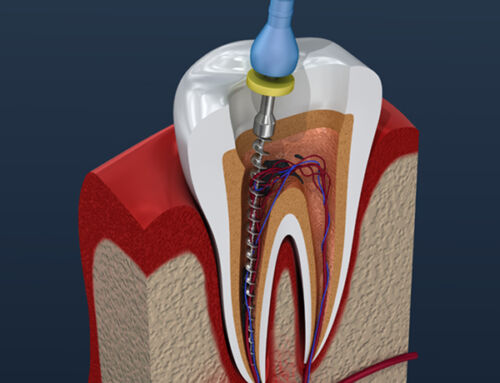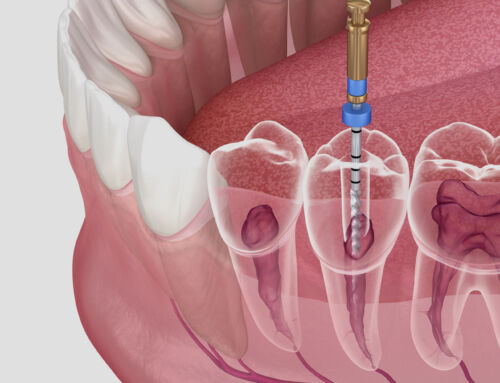As dentists, our goal is to always save a decayed or damaged tooth. So. if there is an extensive cavity present or significant fracture to the tooth and dental fillings will not suffice to preserve the tooth, the next treatment of choice is a root canal.
A root canal treatment involves removing infected tissues and bacteria by cleaning and disinfecting the inside of the tooth. It may be recommended by your dentist if you have a dental abscess or an infection due to a large tooth decay. Once the tooth is in good health, the next step is to reinforce the strength of the tooth so you can use it to function. This may require a dental crown.
The process of getting a root canal is a series of steps that treat infection, repair the appearance of the tooth, and restore the entire tooth structure. With meticulous planning and execution required, a certain level of skill and experience is crucial for a successful treatment. This is why getting a root canal can be quite pricey.
To give you a better understanding of the treatment and the cost of root canal in Alberta, here’s a short guide for you…
What Affects the Root Canal Treatment Cost?
There is no “one price fits all” when it comes to root canal treatment. Every case is different and has different price points. Some factors that dictate the cost of a root canal treatment are:
- Tooth involved
The anatomy of the tooth to be restored significantly impacts the cost of the root canal treatment. As you go further back in the tooth, the price increases. This is mostly because of the complexity of access to the tooth and the increasing number of root canals to be cleaned.
A front tooth is easier to reach and clean and would usually only have 1 – 2 canals. Meanwhile, back teeth or molars can have up to 4 canals. These are identified using an X-ray and assessed before you begin treatment.
- Severity of infection
The larger the infection, the longer it will take to completely clean the canal. This is an important step of the treatment as it prevents possible reinfection. You may need to shell off more if a longer treatment time is expected.
- Filling vs crown
The size of decay determines the final restoration after the root canals are cleaned. This is usually either a filling or a crown. Smaller decay may get away with a regular dental filling. But if a large part of the tooth has been compromised, a crown is a better option for long-term treatment success.
A previously root-canal-treated tooth may need extra work and a fee to redo. It will require the removal of an existing crown and all material inside the canal.
- Dentist expertise and dental clinic
Lastly, the dental office you go to can also affect the cost. Dentists with additional endodontic education under their belt and with advanced experience in the treatment will cost more. Clinics with modern equipment and in prime locations are also expected to have higher fees.
Understanding the Dental Fee Guide
At Chinook Dental, we strictly follow the Alberta Dental Association fee guide for all our dental treatments. This public fee information gives our patients full access to our dental treatment costs.
Following the ADA guide, our baseline for the cost of a root canal depends on the number of canals.
- One canal – $761.19
- Two canals – $1,108.48
- Three canals – $1,296.32
These costs do not include difficulty in access, exceptional anatomical structures involving accessory canals, calcified canals that make cleaning difficult, and retreatments. All of which incur additional costs. Also, further treatments after a root canal, such as getting a crown, are not yet included in the fees mentioned.
To get a better idea of the cost of a root canal in Alberta and at Chinook Dental, you may find the ADA guide at this link.
How to Reduce the Root Canal Procedure Cost?
You may be wondering, with costs this high is there any way to reduce the cost? We’ve got some tips that can help you out:
- Prevention is key
Prevention is always better than cure. The same way goes when it comes to the cost of your root canal treatment. Scheduling bi-annual dental visits for check-ups and teeth cleaning is a fraction of the cost of a root canal.
- Visit your dentist early
See your dentist as soon as you see any signs of decay or infection. With root canal treatments, you are likely to spend less with a smaller decay as it may require a simple dental filling for final restoration. Otherwise, a larger decay will need a more expensive dental crown to complete the treatment.
- Check your insurance policy
Select dental insurance may cover some or the entire cost of your root canal. If you are covered with personal or company dental insurance, check your policy to determine if you can get a price cut.
- Review payment terms
Some dental clinics may offer installment plans for their dental treatments. But, you may get some discounts by paying in cash or on a one-payment basis. Talk to your dental care provider to determine if this is possible.
- Consider going to dental schools
Dental or endodontic schools do different dental procedures for a lower cost, sometimes even free. Check any of these schools near you to save some money on your root canal procedure.
Root Canal Cost at Chinook Dental
As with all dental procedures, it is important to consider the overall value and quality of your root canal treatment, not just the price. Your teeth are your investment in your long-term oral health, so do not compromise on what you can get.
If you have more questions about root canal treatment, contact us at Chinook Dental Group and book your appointment today!






